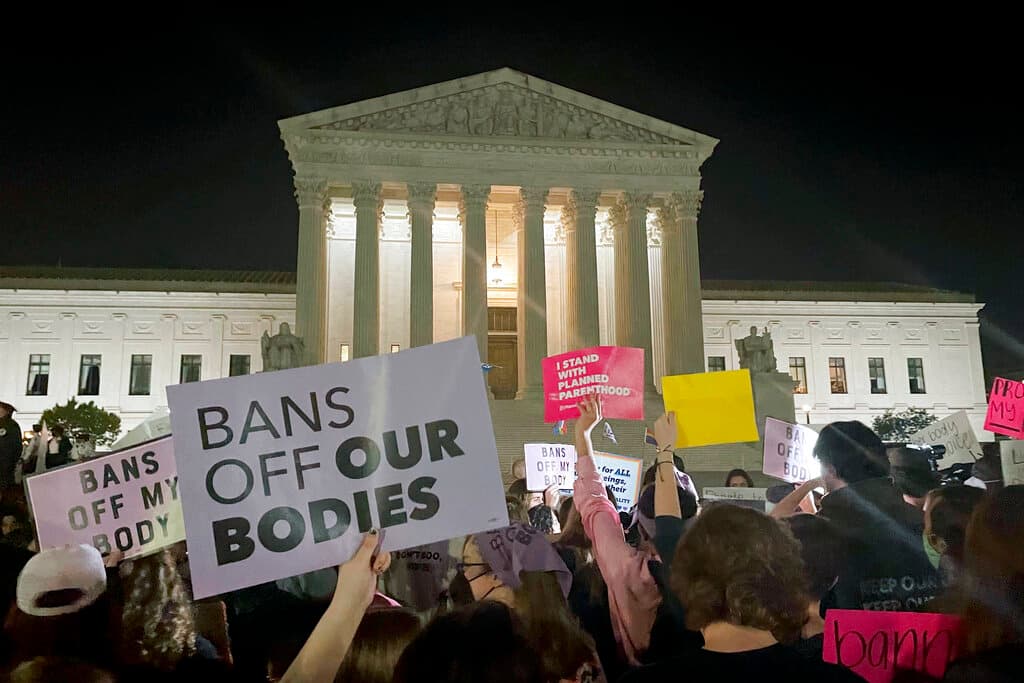Youthquake: Has Abortion Activated the Youth Vote?
Polls suggest that the Supreme Court’s abortion ruling is even less popular among younger voters than it is among the population as a whole. That could mean higher turnout for a voting bloc long written off as apathetic.

For decades pundits and politicians have speculated about ways to get young people out to vote. It looks like the Supreme Court may have just figured out the answer — abortion.
According to the Center for American Progress, a little more than 20 percent of eligible voters are between 18 and 29 years old, but they have historically turned out in lower numbers compared to other groups.
In the 2020 election, according to a report by the Census Bureau, just over half of voters aged 18 to 24 turned up at the polls. Slightly more than three-quarters of voters between the ages of 65 to 74 voted that year.
It now appears that the Supreme Court decision to overturn Roe v. Wade struck a chord with young voters. Recent polling from Politico and Morning Consult suggests that there has been a 10 percent bump in voter enthusiasm among young adults since the Dobbs v. Jackson decision.
A Harvard Youth Poll found that political engagement among 18- to 29-year-olds is nearing an all-time high, and that abortion was the no. 1 issue for 13.1 percent of women in the age range. The poll was taken in April, before the constitutional right to an abortion was overturned.
A survey conducted by All in Together, a group that advocates for women’s representation in political and civic discourse, found that after the Texas Heartbeat Act restricting abortion in that state was passed, 72.5 percent of women described themselves as “more interested” in voting in 2022. About half of those said they were “much more interested” in voting in 2022.
The poll, taken before the Dobbs v. Jackson ruling, also found that in this demographic, overturning Roe v. Wade would make 83 percent of women more interested in voting. Overall, 56 percent of all voters of any age group reported that the decision made them more interested in voting.
All this suggests that the Supreme Court decision may have activated a demographic of voters typically characterized by apathy.
Polling from Gallup taken in May found that 71 percent of voters aged 18 to 29 identified as “pro-choice” and 26 percent called themselves “pro-life,” suggesting that the broad majority of young voters who are motivated by abortion rights would be motivated to support them.
Post-ruling polling confirms the earlier data about abortion’s importance to young voters.
An August 4 Data for Progress report found that 54 percent of voters aged 18 to 29 considered abortion rights very important to the way that they vote, with an additional 27 percent considering the issue somewhat important.
For comparison, an April 2022 Harvard Youth Poll found that voters aged 18 to 29 break for the Democrats over Republicans, 55 percent to 34 percent.
An associate editor at Sabato’s Crystal Ball, John Coleman, hypothesizes that while the overturning of Roe v. Wade might not lead voters to change who they vote for in the midterms, it could get more people out to vote.
“Younger voters electorally really don’t punch at their weight,” he tells the Sun. “Younger voters may be more motivated by social issues this year than other voters.”
He argues that while younger voters have been lukewarm on President Biden and his administration, the sea change in abortion rights could get more young voters to the poll than in a typical midterm.

